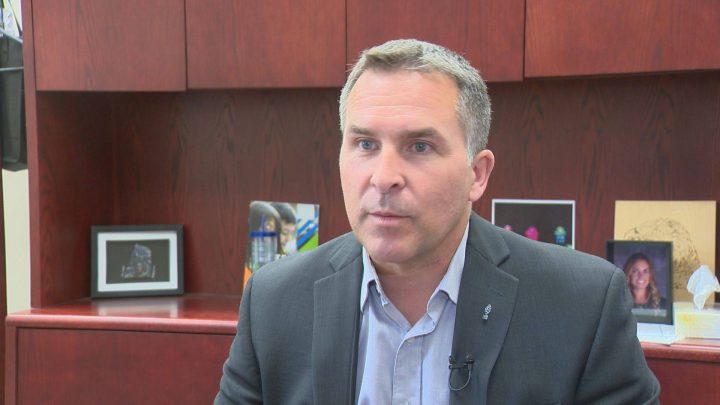The Saskatchewan Teachers’ Federation (STF) has declared an impasse in its contract negotiations with the province.

The STF said they have not seen any progress in their two key issues: class size/composition and teacher salaries.
“Teachers have told us addressing the significant and complex challenges in classrooms is as important as salary,” STF president Patrick Maze said in a statement.
“Not only is the recent class size and composition committee announced by the minister a deliberate attempt to undermine the collective bargaining process, the committee as proposed falls short in terms of structure, authority and accountability.”
Education Minister Gordon Wyant previously said he does not want to discuss classroom size and composition at the bargaining table. Instead, the ministry is in the process of developing a committee to examine the issue and come up with recommendations to be put in the 2020-21 provincial budget.
The STF was offered a seat at this committee table, but declined. The STF’s position is that having standards for class size and composition is the only way to ensure accountability.
Heading into the bargaining process, the STF polled their membership on what their biggest issues were. Maze said this was the first time an issue (class size and composition) ever tied salary as the biggest concern heading into contract talks.
Wyant said he’s disappointed to hear the STF has declared an impasse, but holds firm on his position about keeping class size and composition out of bargaining. He said those talks should be focused on issues like salary and benefits.

Get daily National news
“Education policy shouldn’t be included in a collective agreement. Where we’ve seen it happen, we’ve seen teachers, administrators and principals, become nothing more than compliance agents and we don’t think that’s good for children,” Wyant said.
The minister added he is getting ready to announce the members of the government’s class size and composition committee in the near future and “regrets” the STF declined its seat at on the committee.
Maze said there has been no directive to STF membership not to take part in the committee. He added that he doesn’t think just one teacher could adequately bring issues surrounding high-needs students, English as an additional language, and slim northern and rural resources to the table.
The ministry’s original vision for the committee included: four members from the ministry, one from the STF, one from the Saskatchewan School Boards Association, an academic leader, a professional staff member and a parent. The STF declined their seat. At the time, Maze said it signaled-bad faith bargaining.
Education critic Carla Beck is calling on the two sides to find common ground before tensions, and the specter of job action, can escalate further.
“I think that there is a very real and present need for both sides to get to the table and look for common ground. I think that the trajectory that we’re on currently is divisive and I lay that at the lap of the minister and the government,” Beck said.
“There are a number of places that we can be looking for common ground here. Instead we’re seeing grandstanding.”
On the salary side, the province pitched a one-time extra $1,500 payment for teachers in the first year of the contract, followed by two per cent raises in 2020 and 2021. The STF is asking for a two per cent raise in 2019 and three per cent raises in 2020 and 2021.
With the impasse declared, the STF said their bargaining unit has requested that the Educational Relations Board establish a conciliation board to help reach a new collective bargaining agreement.









Comments